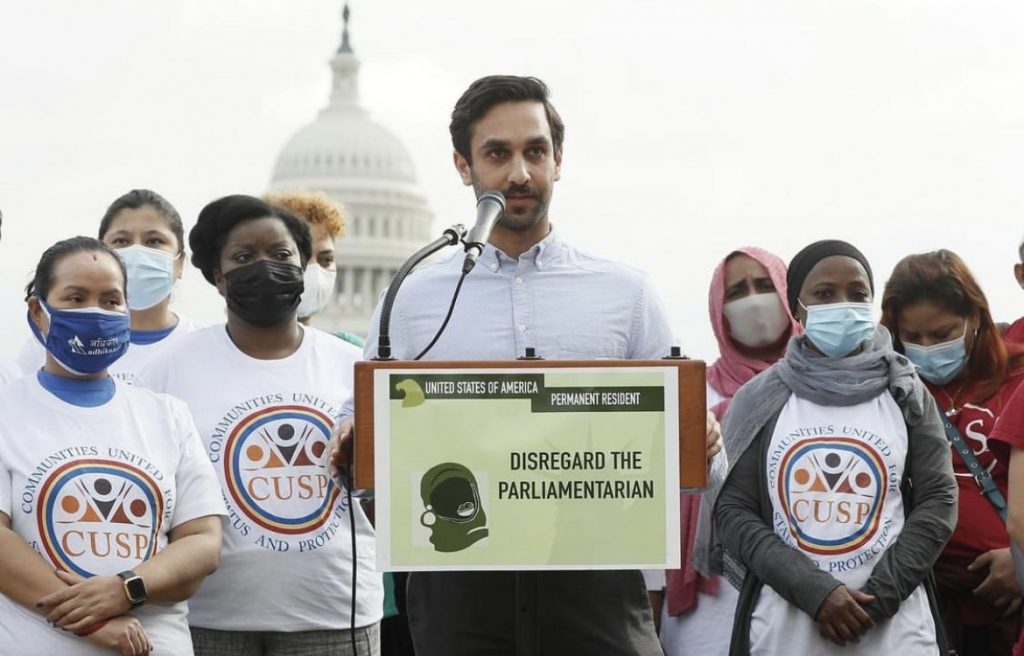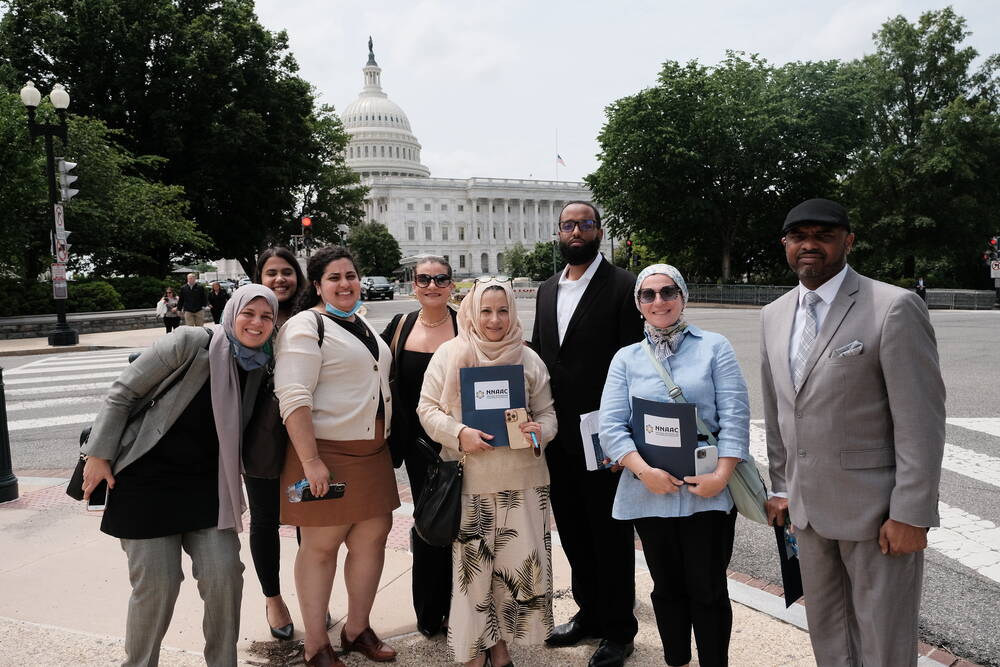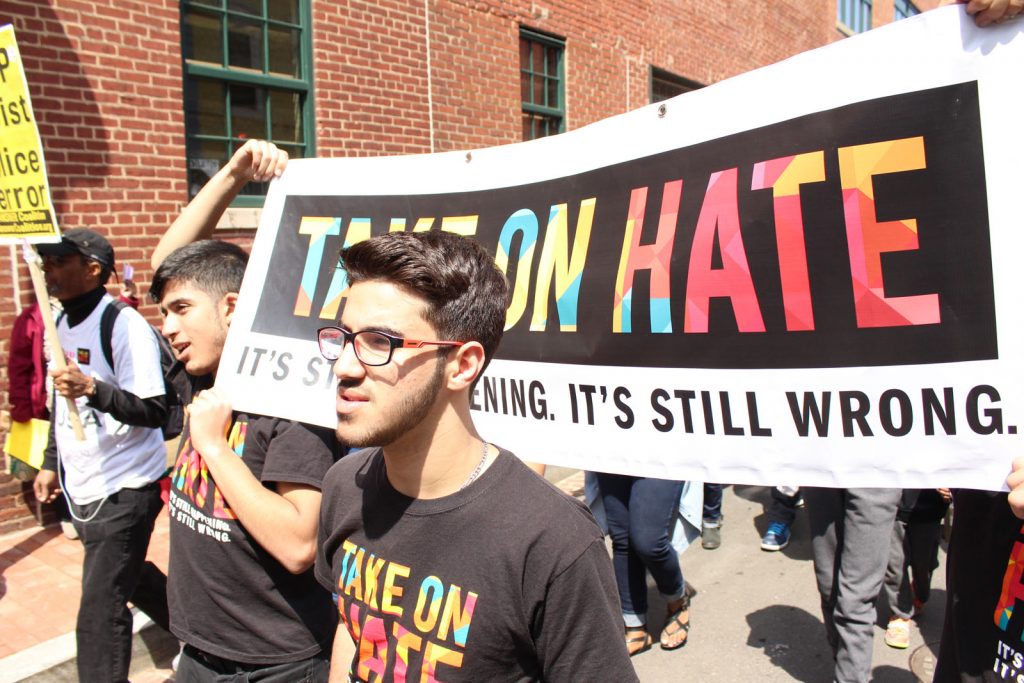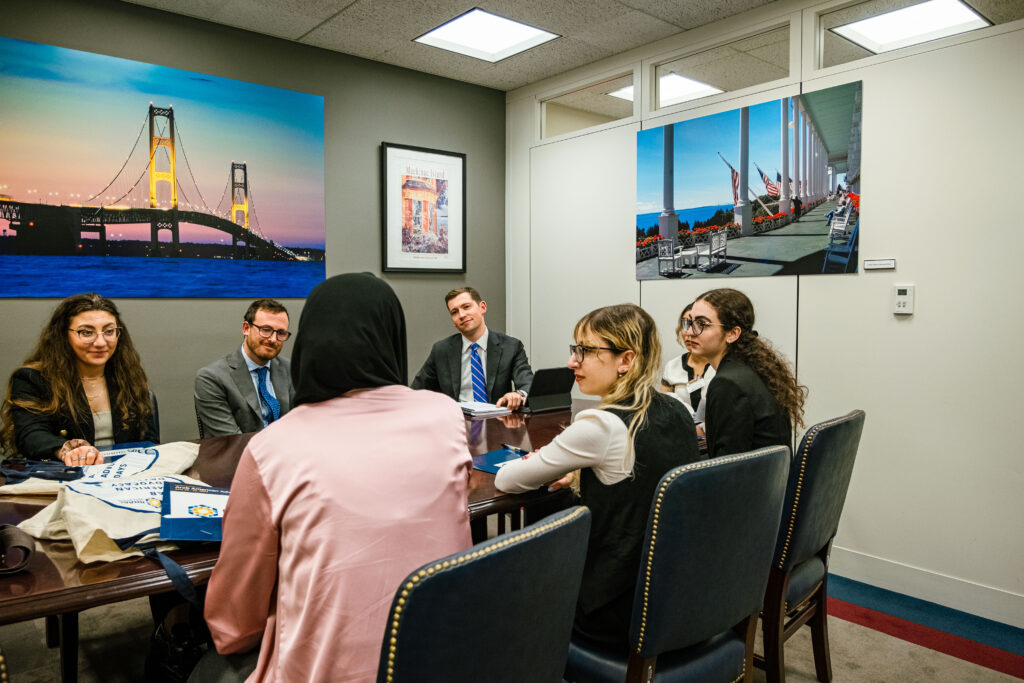Our policy work is focused on serving member organizations as well as the Arab American community. NNAAC’s Policy and Advocacy program works with both NNAAC members and their communities to amplify the needs and interests of the Arab American and broader Middle Eastern and North African (MENA) community. To develop our policy recommendations and advocacy actions for each issue area, we consider the intersection of federal and state policy, the capacities and service offerings of NNAAC members, and the needs of the communities they serve.

Much of NNAAC’s work in immigration justice is done in collaboration with coalition partners including Communities United for Status and Protection (CUSP).
NNAAC is committed to promoting meaningful immigration reform, starting with the passage of the Renewing Immigration Provisions of the Immigration Act of 1929 (Registry bill), aimed at fostering a fairer and more inclusive system.
We are also actively advocating for the designation of Temporary Protected Status (TPS) for Arab nations grappling with humanitarian crises, hostilities, environmental catastrophes, or other severe challenges. This includes our recent successful advocacy for TPS for Yemen and our ongoing efforts to secure TPS for Lebanon.
Additionally, a key focus of our immigration justice efforts is opposing the Equal Representation Act. This legislation proposes adding a citizenship question to the US Census, which could exclude non-citizens, including lawful residents and undocumented immigrants, from fair representation. Such a move not only contradicts democratic principles enshrined in the Constitution but also undermines the contributions of non-citizens, including members of our armed forces, who would unfairly lose representation in the House of Representatives under this law.

After decades of advocacy, Our #CountMENAin campaign succeeded in laying the groundwork for data equity by ensuring the federal government recognized Middle Eastern and North African (MENA) as its own distinct category separate from “white.”
As a result, our next step is to work on the implementation of SPD 15 across the federal government in a way that reflects the realities and needs of our diverse communities. We have two goals to this end: to ensure that all federal agencies collect detailed data on race and ethnicity and to pass the Health Equity and MENA Community Inclusion (HEMCI) Act.
The HEMCI Act would require the U.S. Department of Health and Human Services (HHS) to produce a detailed report– the first of its kind – on the health of diverse MENA populations. The HEMCI Act would also require HHS to use the report to reform its own policies and programs with respect to Arab Americans and other MENA subgroups.

The struggle for voting rights in America has been marked by decades of labor and immense sacrifices by the Black community. These sacrifices culminated in the passage of the Voting Rights Act (VRA) of 1965, a landmark piece of legislation born out of the Civil Rights Movement. The VRA addressed widespread racial discrimination in voting, particularly in southern states, by outlawing discriminatory measures such as literacy tests, the grandfather clause, and poll taxes. However, despite the VRA’s successes, its effectiveness has been eroded by Supreme Court decisions, such as Shelby County v. Holder in 2013, which weakened preclearance provisions and led to a resurgence of voter suppression tactics. In response to these challenges, the John Lewis Voting Rights Advancement Act (JLVRAA) emerged as a legislative effort to restore and strengthen the protections of the VRA. NNAAC advocates for equitable voting rights in part by advocating for the JLVRAA.
At the state level, NNAAC urges and supports NNAAC members to pass a resolution urging their state government to introduce state voting rights legislation including Arab Americans.

Dehumanizing and hateful rhetoric against Palestinian, Arab, and Muslim Americans has been on the rise in recent weeks. Recent events, such as the shooting of three Palestinian college students in Burlington, Vermont and the murder of 6-year-old Palestinian boy in Chigaco, Illinois are the direct result of this dehumanizing rhetoric that has been exposed by the media and elected officials. Palestinian, Arab, and Muslim Americans have increasingly become the subjects of hateful, dehumanizing rhetoric or the victims of targeted violence, hate crimes, and discrimination since the siege on Gaza began on October 7th, 2023.
Every day, your elected officials make decisions on your behalf. Now, more than ever, they need to hear from you the impact dehumanizing rhetoric is having on our communities, to ensure that they not only stop using this rhetoric but also start condemning it.

Every year, Congress passes a bill to provide the federal government with funding for all of its various programs and projects. The federal budget process offers a critical opportunity to provide funding to address the needs of Arab American communities who have been underrepresented and underserved for decades. The lack of data on Middle Eastern or North African (MENA) communities has created a critical gap in understanding and addressing the needs of Arab American communities across the country. Through our Data Equity initiatives, including the #CountMENAIn advocacy campaign, NNAAC works to address the lack of MENA representation. Through our Budget Equity initiatives, NNAAC works within the federal budgetary process to provide direct support to Arab American communities.
This year, NNAAC worked with offices in the U.S. House of Representatives and the U.S. Senate to advocate for policy reforms that would improve the quality of services Arab Americans receive through the U.S. Departments of Education, Labor, Health and Human Services, Justice, and Commerce. If included in the final funding bill, our work would improve our communities’ educational attainment, health, employment opportunities, and experience with the justice system.